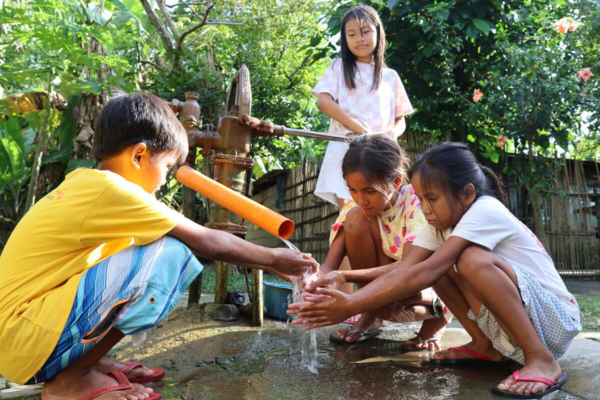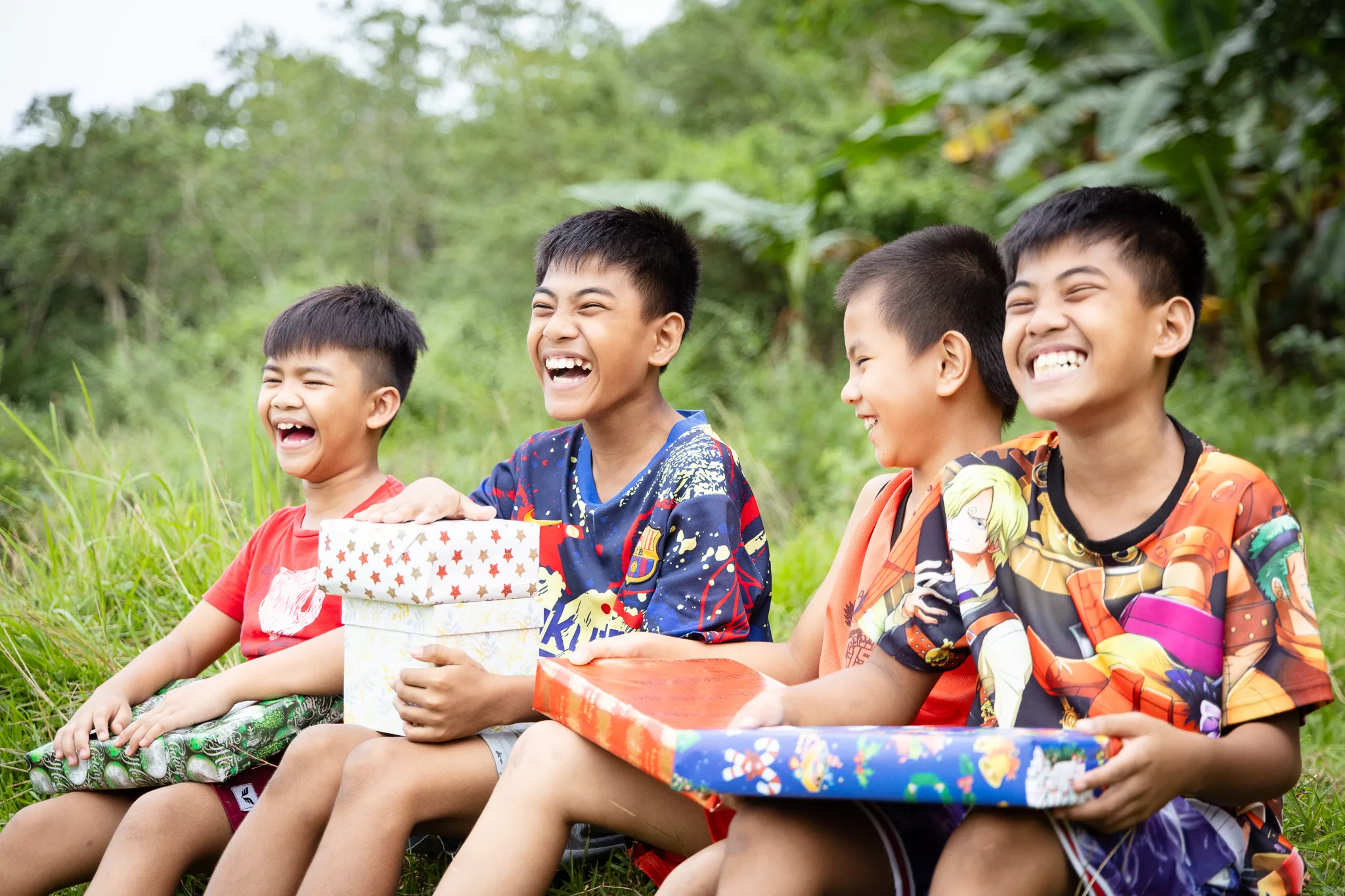World Vision turns over the Mother-Baby Friendly Philippines Reporting Platform to DOH, encourages public to report Milk Code violations
Last August 5, 2018, about 2,000 mother and baby pairs and their companions witnessed the handover of the Mother-Baby Friendly Philippines reporting platform to the Department of Health during Hakab Na! 2018.
“Hakab Na” or the Big Latch On is an annual gathering of breastfeeding moms organized by one of the biggest breastfeeding advocate groups in the country: Breastfeeding Pinays. It aims to promote breastfeeding as the natural way of feeding infants and to reduce the stigma often associated with breastfeeding.
This year, World Vision Development Foundation partnered with Breastfeeding Pinays and the Department of Health for the said event. It is in line with World Vision’s Mother-Baby Friendly Philippines project, which seeks to improve the implementation of breastfeeding laws in the country by developing a reporting system that can be easily used by the public to report non-compliance.
Why is there a need for a reporting system?
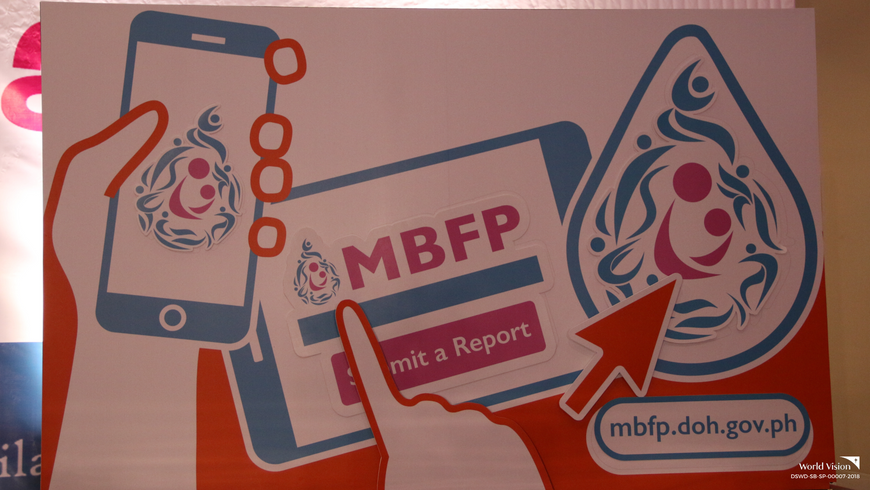
Studies have consistently shown that breastfeeding is the optimum source of nutrition for infants and young children. Moreover, researches also proved that breastfeeding also benefits mothers because it reduces their risks of developing illnesses, such as breast and ovarian cancer.
Despite this, breastfeeding has constantly faced challenges. Breastfeeding moms are often ridiculed. According to the study conducted by the University of the Philippines Social Action Research and Development Foundation (UPSARDF), some of the biggest challenges facing breastfeeding are lack of knowledge (even at the family level), lack of updating of competencies among health workers, and ubiquitous promotion of breastmilk substitutes and formula milk.
UPSARDF also found out that some mothers choose to NOT breastfeed because of their workload, unsupportive work environments, inability to express breastmilk, and belief that formula milk is better than breastmilk. The latter is associated with milk companies’ aggressive promotion of formula milk and other breastmilk substitutes. Television, radio, print materials, and even social media are bombarded with advertisements implying that formula milk is equal to, if not above, a mother’s breastmilk.
This is despite the fact that the Philippine government has already enacted laws that protect breastfeeding. For one, Executive Order 51 (National Code of Breastmilk Substitutes, Breastmilk Supplements, and Other related Products or Philippine Milk Code) regulates the marketing, promotion, and distribution of breastmilk substitutes, which includes formula milk, feeding bottles, and teats. The Code aims to ensure that milk companies and their products will not undermine breastfeeding. Under the said law, milk companies are also prohibited from using the health care system in promoting their products.
Republic Act 7600, or the Rooming-in and Breastfeeding Act of 1992, on the other hand, protects the wellbeing of a newborn child and her mother by ensuring that the breastfeeding will be initiated in the first hours of a baby’s life. Lastly, Republic Act 10028, or the Expanded Breastfeeding Promotion Act of 2009, protects the rights of lactating women by mandating all public and private companies and institutions to set up breastfeeding stations and to allot 40-minute lactation break for a breastfeeding employee.
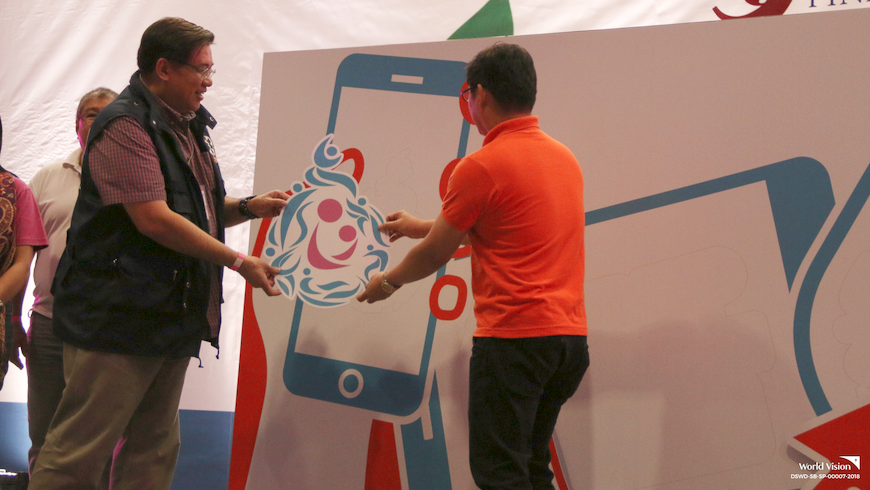
As a response to the prevalent violations to the said laws, World Vision Development Foundation, in partnership with the Department of health, launched the project called Crowd-Based Monitoring of Milk Code Compliance, otherwise known as Mother-Baby Friendly Philippines (MBFP). The project is called such to signify its intention to involve the public in monitoring possible non-compliance to breastfeeding-related laws. It aims to drive every sector to share the responsibility of promoting, protecting, and supporting breastfeeding. To achieve this goal, MBFP project team conducts series of trainings and capacity-building activities to educate mothers, their caregivers and families, as well as the members of the health care system about the provisions of the laws.
The team developed a reporting system that aims to monitor non-compliance to breastfeeding laws: the MBFP website (accessible at mbfp.doh.gov.ph), MBF Ph mobile app (downloadable both for Android and iOS phone users), and a text mechanism (29290-6237).
The website and the mobile app have a user-friendly interface. A dropdown list is also developed to make it easier for reporters to categorize violations. A person’s privacy is also protected since the reporting form will not require them to indicate their name. Meanwhile, a person can send reports thru text even without phone credits.
Perhaps one of the most important features of the system is its feedback mechanism. In the course of the whole reporting process, reporters will receive at least four updates on the status of the report/s they have sent. They shall be notified when their report has been received, if it is already validated, and if it has been acted upon by the Department of Health and other concerned government agencies.
What is next for Mother-Baby Friendly Philippines?
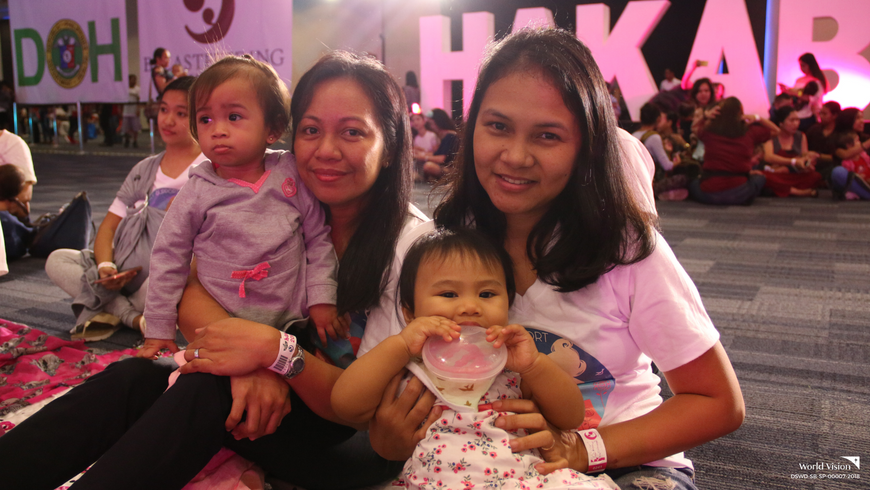
The platform has already been turned over to the Department of Health, but the quest towards achieving a mother-baby friendly Philippines remains a top priority for World Vision. The team will continue to hold advocacy activities in the communities. Information, education, and communication (IEC) materials shall be distributed to raise the public’s awareness about the laws and the reporting process.
For more information, visit mbfp.doh.gov.ph.
Written by Leovina Ramirez, World Vision/August 7, 2018
World Vision is a global Christian relief, development and advocacy organisation dedicated to working with children, families and communities to overcome poverty and injustice. World Vision serves all people, regardless of religion, race, ethnicity, or gender.
Stay up to date with World Vision Philippines! Follow us on Facebook, Twitter and Instagram.


